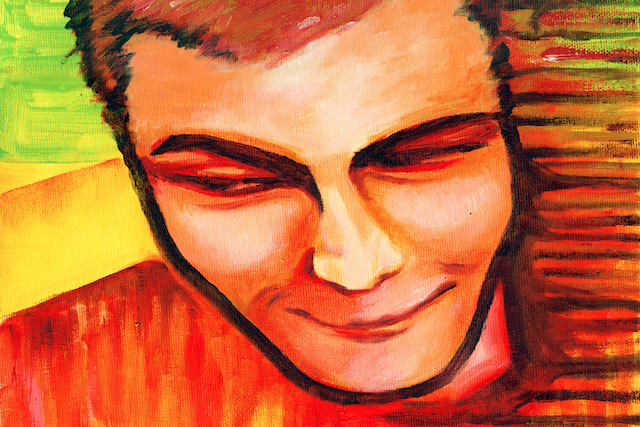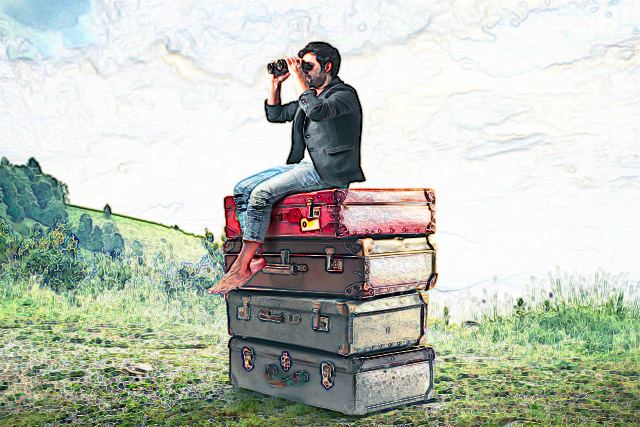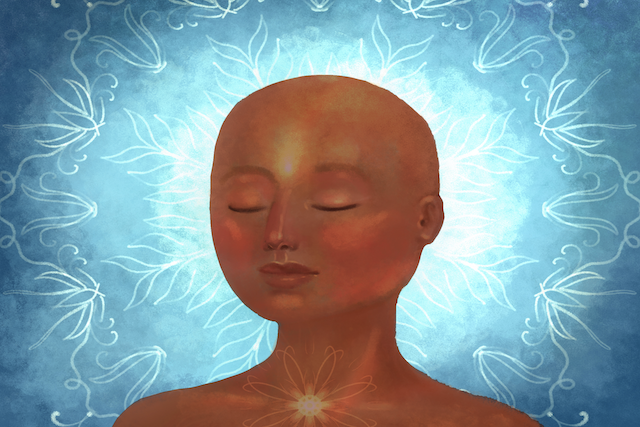
“You may be deceived if you trust too much, but you will live in torment if you don’t trust enough.” ~Frank Crane
I’ve had trust issues for as long as I can remember, but didn’t realize it until after my divorce.
Divorce can be a traumatic experience, and in this case, it made me begin to take stock of my life. I began to reflect on my failed romantic relationships and why this was a repeat pattern for me.
I realized then that I never let people in for fear they will let me down, belittle or make me feel small, or otherwise diminish me in some way. I keep people at a distance, and this impacts my ability to have close, connected relationships.
I used to think I had trust issues because I grew up in a family where things were not “psychologically safe.” But I’ve come to realize there’s more to it than that.
Have you ever struggled with trust issues thinking they were caused by something outside yourself? That trust was a matter of what other people did, how they treated you, or how they disappointed you? Maybe it’s time to consider that perhaps your trust issues are more about you than other people.
While I may have some wounds from not receiving the emotional nurturing I needed when growing up, I have trust issues not because I distrust others, but because I don’t trust myself. What?!
This was a surprising revelation. But, it helped me realize what I needed to do in order to truly trust other people—that was begin by trusting myself.
You may have trust issues as well if:
- You view people with suspicion about their motives
- You don’t share your true feelings
- You assume the worst intentions by others
- You make every interaction all about you—how could they do this to me?!
- You doubt your own capabilities and decisions
What happens when we are operating on a “non-trust” level? We keep ourselves closed off from all the opportunities available to us.
Let me tell you a story about how this has played out in my life. One day I was out walking along a beautiful beach with a girlfriend. She said, “Wow—these guys around us are really checking you out.”
“Really?” I asked.
“That’s you’re problem!” she said. “You are oblivious.”
And she was right. I was completely disengaged from the world around me because I didn’t trust it. I wasn’t open to people’s smiles, or their overtures, or even their kindness. I was basically checked out, and I rarely noticed when others made attempts at engagement.
There have been many occasions when a person was about to open a door for me, but I was so busy being independent that I opened ir myself without even noticing their attempted act of kindness. This left me living a life that was mostly isolating and solo.
Humans are social creatures, and we need human connection to feel alive and complete. When we cut ourselves off from this life-giving force because we are suspicious and don’t trust others, we harm ourselves more than any act of untrustworthiness we could experience.
Yes, people will sometimes disappoint us, and yes, people will occasionally do malicious things. But, in the end, we have to get over this. We need to move on from continuously licking our wounds so we can heal them and start living fully again.
As children we were naturally trusting, sharing our toys, our thoughts, and our hearts with abandon. It’s not until we were trained to distrust the world and “not talk to strangers” that we began to lose our innocence and belief in the inherent goodness of humanity.
Or, we didn’t receive strong nurturing as kids, and this caused a wound that never seemed to heal properly. While it can be good to have a healthy dose of skepticism so as not to become victims—and we need to teach our kids to stay away from strangers to keep them safe—it is not healthy to remain closed off and shut down from the world.
We must learn to trust despite knowing we may get hurt. It is only by opening our hearts that we can have flourishing relationships, see the opportunities around us, and begin to live a more fulfilled life.
What happens when people let you down? You accept that they are imperfect beings and move on. What happens when you let yourself down? You do the same thing. This is where I think I got hung up. I didn’t trust myself, and this actually made it impossible to trust other people.
We often project our feelings and beliefs onto others without consciously realizing we’re doing it. If we don’t trust ourselves to do the right things, we might project that onto other people and assume they too will let us down. If we don’t believe in our own inherent goodness, we likely won’t believe in anyone else’s.
I had a hard time trusting myself because I never accepted myself as a flawed and imperfect being. I could never get over my own disappointment when I let myself down. What are some ways I let myself down?
- Letting myself remain in an abusive relationship
- Lying about my drinking addiction and hiding it from my family and friends
- Not following through on a job opportunity I was too afraid I might get rejected
- Not having the confidence to follow my dreams
- Acting in ways that were counter to my moral values
We can lose trust in ourselves in many ways, but then we can also build that trust back up.
For me, I built my trust by realizing I wasn’t living up to my greatest self. I began to make conscious choices to change that. I got help for my drinking problem. I found the courage to take baby steps toward my ambitions, and each time I did, I built on that success. I focused on developing my personal strengths and growing as a person. Most of all, I strived to do the best I could in any given situation.
Did I fail sometimes? Did I still let myself down? Of course, I’m imperfect. And this is okay. I found that if I was doing my best I could allow the occasional stumble without beating myself up or deciding that I couldn’t trust myself at all. And I could do the same for other people. If they occasionally disappointed me, I could recognize that this is what it means to be human.
I realized I didn’t have to see things as black and white—that people, myself included, are either trustworthy or not. Because life is all about shades of gray. Sometimes people will let us down, but that doesn’t mean they always will.
Even if people make mistakes, and even if we occasionally need to cut ties with people who continually hurt us, we can trust that most people have good intentions. And if we set the intention to always do our best, we can trust that we generally will, even if we falter at times.
The way to resolve trust issues is to learn to trust yourself. When you believe that you are always doing your best, you’ll be able to extend this same belief to others. This will help you go out into the world and be open to people and experiences with curiosity and a pure heart, without bitter preconceptions.
When we live a life full of integrity and trustworthiness to our deepest self, we can better learn to accept others’ mistakes and flaws, even if they hurt us. We can also learn to trust that despite what others may do, or how they might disappoint us, we will be able to get through it, our faith in humanity in tact.
This will help us embrace life more fully and flourish in our widest and fullest potential—to spread our wings and fly.
![]()
About Kerry Campbell
Kerry is the founder of the Academy of Well-Being, online courses that teach you powerful tools and techniques for creating positive transformation and well-being in your life. They provide you with prescriptive guidance for empowering and lasting change. Kerry lives in Encinitas, CA, has two children, and is also an artist. View her artwork at kerrycampbellartist.com.
Get in the conversation! Click here to leave a comment on the site.
The post How I Learned to Trust Others by Learning to Trust Myself appeared first on Tiny Buddha.





